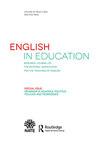Poetry in education
IF 0.8
4区 教育学
Q3 EDUCATION & EDUCATIONAL RESEARCH
引用次数: 1
Abstract
For forty years or more, much of the discourse about poetry in education has constructed poetry teaching and learning as an especially difficult professional problem to be solved. The problem has been analysed in many different ways: as a product of inadequate teacher subject knowledge and pedagogical fear; as an inherent problem with poetry and a perception of its methods of meaning-making as elitist and alienating; as a problem of curriculum development, predicated on an inadequate selection of poems in relation to different ideas about relevance; and, in England, perhaps above all, as a problem of National Curriculum prescription. The problem with “the problem with poetry” is that the influential idea channelled research into what the cultural anthropologist Michel-Rolph Trouillot termed a “cultural slot”. In this space, he argued, the research domain becomes self-replicating, anatomising the problem within established terms, the roots of which are rendered opaque over time and historical agency overlooked. By this process, new research can only contribute to “morosely preserving the empty slot itself” (Trouillot 1991, 40). One might argue that the standard conception of the function of a literature review contributes to this dynamic. That is not to dismiss any of the excellent work that has been done to anatomise the challenges (and joys) of teaching poetry in different contexts, not least Margaret Mathieson’s article “The problem of poetry” () and Richard Andrews’ later book The Problem with Poetry (1991). Nor is it to question the ethical commitment of many researchers to developing first rate professional practice. Indeed, we have both written in different ways about “the problem of poetry” (Snapper 2013; Blake and Shortis 2010). For this special edition, however, we were keen to advance a research agenda that goes beyond this slot. We build, of course, on important work by others in our field. The ESRC funded Poetry Matters seminar series (2011–2012), led by Sue Dymoke, Anthony Wilson and Andrew Lambirth, resulted in two excellent books, Making Poetry Matter: international Research in Poetry Pedagogy (Dymoke, Lambirth, and Wilson 2013) and its companion volume Making Poetry Happen: Transforming the Poetry Classroom (Dymoke et al. 2014). These comprehensively re-articulate “the problem with poetry” in relation to contemporary contexts, but also crucially move on the debate by presenting examples of excellent imaginative practice in teaching poetry as reading, writing, and speaking and listening, and exploring what might constitute “transformative poetry cultures”. In the second volume, the editors argue for “a broader cultural vision, a more creative, artistic and engaged approach to literature learning”. They call for practices that connect poetry in the classroom with the renaissance of poetry in public spaces beyond the school, and for a shared experience of poetry that is about creative playfulness, joy and empathy, and which settles with uncertainty and divergent ways of seeing the world. In choosing papers for this special edition of English in Education we hope we have built on the powerful and positive concluding vision of Making Poetry Happen. ENGLISH IN EDUCATION 2022, VOL. 56, NO. 1, 1–4 https://doi.org/10.1080/04250494.2022.2030974教育中的诗歌
四十多年来,许多关于诗歌教育的论述都将诗歌教学构建为一个特别难以解决的专业问题。人们从不同的角度分析了这一问题:这是教师学科知识不足和教学恐惧的产物;这是诗歌固有的问题,它的意义创造方法被认为是精英主义和异化的;作为课程发展的一个问题,基于诗歌的选择不足与不同的相关理念;在英国,也许最主要的问题是国家课程设置的问题。“诗歌的问题”的问题在于,这个有影响力的观点将研究引向了文化人类学家米歇尔-罗尔夫·特鲁洛特(Michel-Rolph Trouillot)所说的“文化插槽”。他认为,在这个空间里,研究领域变得自我复制,在既定的条件下解剖问题,其根源随着时间的推移变得不透明,历史机构被忽视。在这个过程中,新的研究只能“忧郁地保留空槽本身”(Trouillot 1991,40)。有人可能会说,文献综述功能的标准概念有助于这种动态。这并不是要否定任何优秀的作品,这些作品剖析了在不同背景下教授诗歌的挑战(和乐趣),尤其是玛格丽特·马西森的文章《诗歌的问题》和理查德·安德鲁斯后来的书《诗歌的问题》(1991)。这也不是质疑许多研究人员发展一流专业实践的道德承诺。事实上,我们都以不同的方式写过关于“诗歌问题”的文章(Snapper 2013;Blake and Shortis 2010)。然而,对于这个特别版,我们热衷于推进一个超越这一时段的研究议程。当然,我们是建立在我们领域内其他人的重要工作的基础上的。ESRC资助的诗歌问题研讨会系列(2011-2012),由苏·戴默克,安东尼·威尔逊和安德鲁·兰博恩领导,产生了两本优秀的书籍,使诗歌重要:诗歌教育学的国际研究(戴默克,兰博恩和威尔逊2013)及其同伴卷使诗歌发生:改造诗歌课堂(戴默克等人2014)。这些文章全面地重新阐述了与当代语境相关的“诗歌问题”,但也至关重要地推动了辩论,提出了在诗歌教学中作为阅读、写作、口语和听力的优秀想象力实践的例子,并探索了什么可能构成“变革的诗歌文化”。在第二卷中,编辑们主张“更广阔的文化视野,更有创造性、艺术性和参与性的文学学习方法”。他们呼吁将课堂上的诗歌与学校以外公共空间的诗歌复兴联系起来,并呼吁分享诗歌的体验,这种体验是关于创造性的玩耍、快乐和同理心,并解决了看待世界的不确定性和不同方式。在为本期《教育中的英语》特别版选择论文时,我们希望我们建立在《让诗歌发生》强大而积极的结束语的基础上。《教育英语》2022年第56卷第1期。1,1 - 4 https://doi.org/10.1080/04250494.2022.2030974
本文章由计算机程序翻译,如有差异,请以英文原文为准。
求助全文
约1分钟内获得全文
求助全文

 求助内容:
求助内容: 应助结果提醒方式:
应助结果提醒方式:


